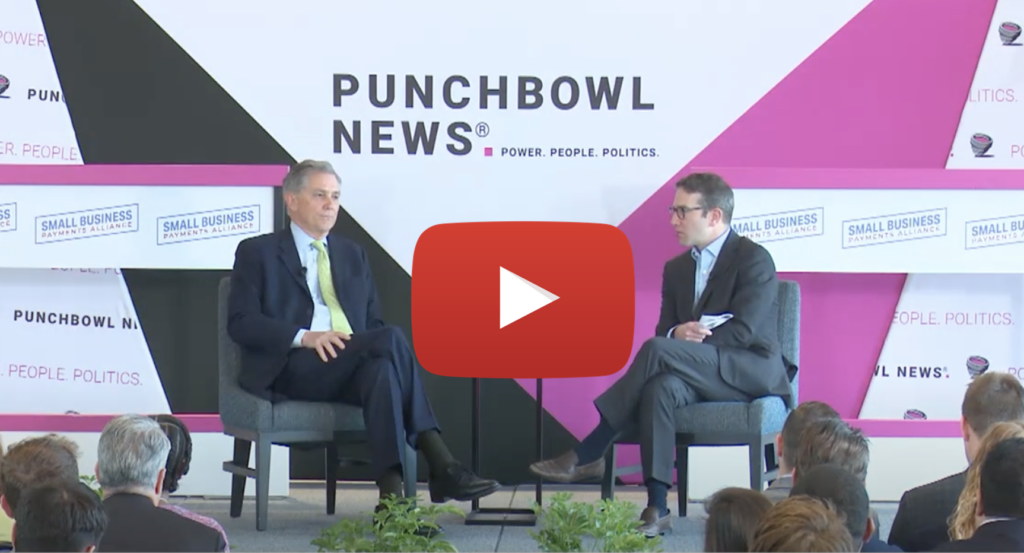Policymakers and Thought Leaders Speak Out Against Investment Tax Increases
Financial Services Chairman Hill on Carried Interest Capital Gains: “It’s not a loophole…it’s a long-term investment management tool, and it’s good for the country.”

Policymakers and thought leaders across America continue to speak out against changing the tax treatment of carried interest capital gains.
Recently, House Financial Services Committee Chair, Rep. French Hill (R-AR), shared his views on the importance of carried interest in fueling American economic growth and investment at an event with Jake Sherman of Punchbowl News. Chairman Hill said:
- “I don’t support closing the carried interest loophole. I think that it is an important component for long-term finance across the country in many, many different kinds of businesses, from commercial real estate to venture capital to, yes, private equity to oil and gas development. I think it’s not a money raiser and I think it is a huge support – and it’s not a loophole. I mean, it’s simply saying that if investors in a particular matter hit a hurdle rate in a long-term holding of a company, the profits over that hurdle rate are split as a capital gain. I just don’t understand this, and it’s been heavily politicized, but in my view, it’s a long-term investment management tool, and it’s good for the country, actually. In terms of jobs, corporate development, business development, long-term investment incentives, it aligns long-term ownership of and profit and capital gain and business growth and investment in a right way, I think.”
Watch the full remarks here.
Throughout this year, other thought leaders have expressed similar support for rewarding long-term investment across America:
- Recently, 17 organizations representing a broad swath of the real estate industry including real estate developers large and small, realtors, and homebuilders wrote a letter to congressional tax committee leadership opposing tax increases on carried interest capital gains: “Carried interest is a crucial tool driving American real estate investment, spurring housing development, and promoting the growth of our built environment. Retaining capital gains tax treatment for carried interest helps ensure our nation can meet the goals of increasing housing supply, modernizing our building stock, and contributing to economic growth. Proposals to tax all carried interest as ordinary income would result in an enormous tax hike on the 2.2 million real estate partnerships and 9.7 million real estate partners across the country who develop, own, and operate income-producing real estate. This, in turn, would result in the creation of fewer residential units at a time when many more are critically needed.”
- Americans for Tax Reform (ATR) led a coalition of free-market groups and advocates, including the American Association of Senior Citizens, the Small Business & Entrepreneurship Council, and the Taxpayers Protection Alliance, in co-writing a letter that opposes tax hikes on carried interest investment income:“The Carried Interest Fairness Act would raise taxes by an estimated $6.5 billion over the next decade while discouraging investment, reducing economic growth, and growing the size of government. Instead of hitting American investors and companies with massive tax hikes, Congress should focus on making the pro-growth tax cuts from the 2017 Tax Cuts and Jobs Act permanent and reducing wasteful government spending.”
- Entrepreneur and Palantir Co-Founder Joe Lonsdale shared his opposition to changing the tax treatment of carried interest in a post on X: “Even if I had no exposure to funds, I’d oppose taxing carry at a higher rate than cap gains … don’t distort incentives in ways that slow growth. It’s not a ‘loophole.’”
- Congressman Warren Davidson (R-OH) said: “I also support maintaining the carried interest provision. This tax treatment has been vital for venture capital, private equity, and real estate professionals, encouraging investment in American businesses and the subsequent benefits of job creation.”


